Have you heard about the new Whistleblower Channel Law but aren’t really sure what it entails? Here’s a brief summary of its objectives, who it protects and who must comply with it.
Starting 13 June of this year, this new regulation requires entities with 250 employees or more to have a whistleblower channel. Moreover, starting 1 December, this will also be mandatory for companies with between 50 and 250 employees, as well as municipalities with less than 10,000 inhabitants. Yes, that’s right, there’s only one week to go. So if you are not aware of what’s going on, read this article that may be of interest to you.
Objectives of the new whistleblower channel law
To guarantee the proper protection of those who decide to step forward and report illegal or infringing actions within organisations, whether they be private companies or public organisations. And to ensure that they will not be subject to any type of retaliation such as: dismissals, not being promoted or being demoted, among others.
It also includes a number of specific support measures for whistleblowers, such as: comprehensive and free advice, financial backing and psychological support.
This objective seeks to promote internal reporting through whistleblowing channels, helping to prevent the commission of crimes or offences within organisations and promote an ethical culture.
But what can be reported? Any action or omission that may constitute an infringement of EU Law (those included in the annex to the Whistleblowing Directive, those that affect the financial interests of the EU and those that affect the internal market), in addition to actions or omissions that may constitute a serious or very serious criminal or administrative offence.

Who does the whistleblower channel law protect?
The whistleblower channel law protects any whistleblower who works in the private or public sector and who has obtained information about offences in a work or professional context.
These whistleblowers may be civil servants, employees, freelancers, shareholders or executives, volunteers, trainees, or employees who are in training periods or going through a selection process.
The law can also be applied retroactively. In other words, it will also protect those who report offences within the framework of an employment or statutory relationship that has already ended.
Which entities are required to have a whistleblower channel?
Companies with 50 employees or more.
Enterprises of any size that operate in: the financial market, environmental protection or transport security.
Companies with a turnover equal to or greater than 10 million euros.
Public administrations and entities (both of the State and Autonomous Regions and the local administration) and constitutional bodies. Public universities and public law corporations.
Political parties, unions, employers and foundations.
Ultimately, the whistleblowing channel law transforms this tool into a fundamental element for combating and preventing offences and crimes in organisations.
If you have a company, do not wait for the deadline for implementing the whistleblower channel to pass and avoid sanctions. At Bacaria Legal we can advise you. Call us now!


